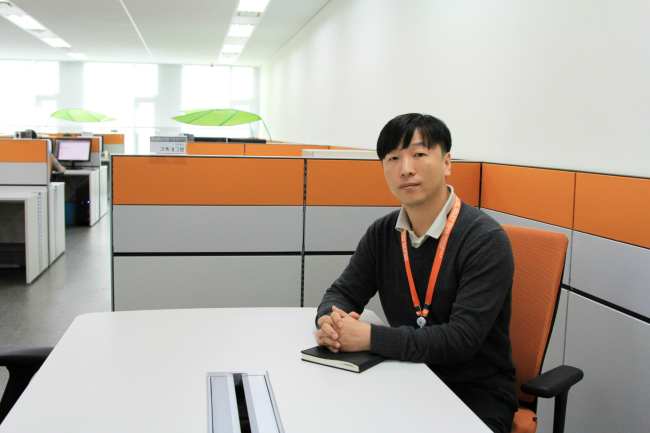The rise of mobile payment in recent years requires device makers and software developers to have hack-proof solutions fitted in their products and services to ensure safe and convenient financial transactions.
Pyun Baek-bum, chief executive of CrucialSoft, said that security solutions adopting the FIDO or Fast Identity Online standards, a set of authentication technologies aimed at enhancing interoperability of identification solutions in mobile devices, have a competitive edge over other authentication systems including Apple’s Touch ID in particular.
 |
| Pyun Baek-bum, the head of mobile security solutions firm CrucialSoft. (CrucialSoft) |
“Different from Apple’s Touch ID, which merely verifies fingerprints to allow access to the device or applications, the FIDO technology can not only check identity through biometric information but also detect any attempt to tamper with payment processes thanks to the so-called TustZone technology,” the CrucialSoft CEO told The Korea Herald.
Simply put, Apple’s identification solution allows any command once fingerprints match with stored biometric data while the FIDO technology has layers of security measures to protect personal information, according to the head of the company.
TrustZone is hardware isolation technology developed by chip designer ARM, aimed at regulating access to key management and storage.
More than 200 global ICT firms including Intel, Samsung Electronics, and Alibaba joined the FIDO Alliance, which was established in 2013. CrucialTec, the parent company of CrucialSoft, is a board member of the global alliance.
Coupled with the widespread adoption of fingerprint scanners, possibly from low- to high-end smartphones, more mobile payment systems equipped with the FIDO standards will sprout up, he forecast.
Leveraging CrucialTec’s competitiveness in biometric module technology, CrucialSoft has been trying to increase its foothold in the burgeoning industry for mobile security solutions since 2013.
It has joined hands with mobile payment services provider Danal to develop security solution BioPay, which authenticates mobile device users based on the FIDO standards.
The security solution is one of a few authentication systems in the world that passed two sets of FIDO specifications including universal authentication framework — a simple identification process via biometric information or PIN — and universal second factor — an authentication process through devices such as USB or NFC.
“With more smartphone-makers and internet firms adopting FIDO standards, I expect there will be more opportunities for CrucialSoft to work with various partners in various markets including Korea and China,” the CEO said.
The company has completed the technology transfer of BioPay to Korea Electronics Certification Authority, which develops online authentication certificates, and security solutions firm Inca Internet.
BioPay, which fully meets the FIDO standards, is compatible with any type of biometric authentication technologies including those for iris and voice recognition.
Some industry reports forecast that the global mobile payment transaction market will grow to around $3,000 billion by 2020 from $400 billion in 2014.
By Kim Young-won (wone0102@heraldcorp.com)



